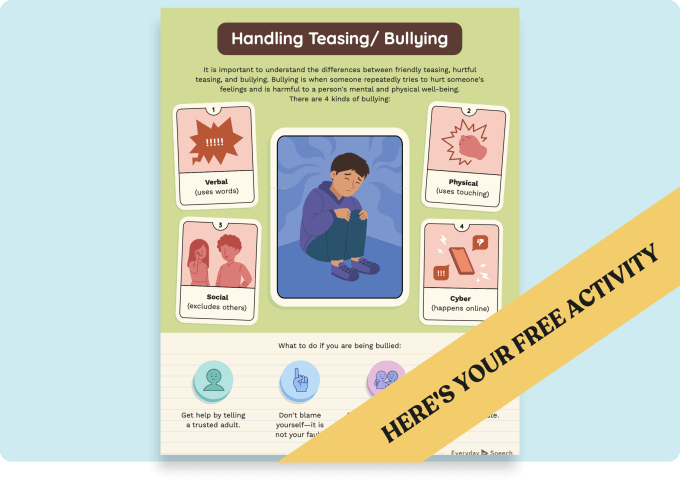Teaching Elementary Students to Use a Filter in Their Thoughts and Communication
Get free social skills materials
No-prep lessons on self-regulation, emotional recognition, conversation skills, and more.
Sign up hereIn today’s world, it is essential for students to develop effective communication skills to build strong relationships and avoid misunderstandings. One key aspect of communication is learning to use a filter, which means thinking about what you’re going to say before you say it. This blog post will explore the concept of using a filter, provide a no-prep activity for educators, and offer discussion questions to engage students in conversations about this important skill.
Introduction
Using a filter in our thoughts and communication is a crucial aspect of Social-Emotional Learning (SEL). It involves being aware of the potential impact of our words on others and choosing to express ourselves in a way that is considerate and respectful. When students learn to filter their thoughts, they are better equipped to navigate social situations and maintain positive relationships with their peers and adults.
No-Prep Activity: The Filter Game
This simple activity requires no preparation or materials and can be easily adapted for students of various ages and abilities. The goal of the Filter Game is to help students practice using a filter in their thoughts and communication.
- Divide the class into small groups of 3-4 students.
- Explain that each group will take turns presenting a scenario to the rest of the class. The scenario should involve a character who is asked a question or presented with a situation that might prompt them to say something hurtful or unkind.
- Give the groups a few minutes to come up with their scenarios and practice presenting them.
- When the groups are ready, have them present their scenarios to the class. The rest of the class will then discuss how the character in the scenario could have used a filter to respond in a more considerate and respectful way.
By engaging in this activity, students will gain a better understanding of the importance of using a filter in their thoughts and communication, as well as practice applying this skill in various situations.
Discussion Questions
- Why is it important to use a filter when we communicate with others?
- Can you think of a time when you didn’t use a filter and it led to a negative outcome? How could you have handled the situation differently?
- What are some strategies you can use to help you remember to use a filter in your thoughts and communication?
- How can using a filter help strengthen our relationships with others?
- Do you think it is ever okay to not use a filter? Why or why not?
Related Skills
Teaching students to use a filter in their thoughts and communication is closely related to other essential SEL skills, such as:
- Empathy: Understanding and sharing the feelings of others.
- Active listening: Giving full attention to the speaker and providing appropriate feedback.
- Assertiveness: Expressing oneself in a confident and respectful manner.
- Conflict resolution: Addressing disagreements and finding solutions that satisfy all parties involved.
Next Steps
Helping students develop the ability to use a filter in their thoughts and communication is a critical component of their social and emotional growth. To further support your students in building this and other essential SEL skills, we encourage you to sign up for free samples of related skill-building materials at Everyday Speech. By incorporating these resources into your teaching, you can provide your students with the tools they need to succeed in their social and emotional development.

